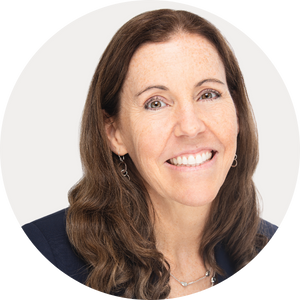Trump 2.0: US Economy & Policy Shifts
Date: 6 May
In the first session of our Trump 2.0 series, we turn our attention to the domestic landscape. We unpack how Trump’s early policy actions — from fiscal shifts and labour market interventions to immigration and industry-specific changes — are affecting the US economy, and how tariff policies will impact local markets. We assess the immediate and longer-term consequences for states, cities, sectors, and tourism, and consider what lies ahead as the administration’s agenda takes shape.
This webinar is being held on our new platform, ON24. If you did not receive your confirmation email, please check your junk and spam folders.
Trump 2.0: The First 100 Days and the Economic Fallout
This webinar is part one of our global and domestic deep dive into the economic consequences of Donald Trump’s return to the White House. For our second webinar in series, register now.
Presenters:

Ryan Sweet
Chief US Economist
+1 (646) 668 5790

Ryan Sweet
Chief US Economist
New York, United States
Ryan Sweet is the Chief US Economist at Oxford Economics. He is responsible for forecasting and assessing the US macroeconomic outlook and how it will influence monetary policy and financial markets. Ryan is among the most accurate high-frequency forecasters of the U.S. economy, according to MarketWatch and Bloomberg LP.
Prior to joining Oxford Economics, Ryan led real-time economics at Moody’s Analytics and was a member of the U.S. macroeconomics team. He was also head of the firm’s monetary policy research, following actions by the Federal Reserve and examining its potential impact on the U.S. economy.
Ryan is an adjunct professor in the Economics and Finance Department at West Chester University of Pennsylvania. He received a master’s degree in finance from John’s Hopkins University, a master’s degree in economics from the University of Delaware, and a bachelor’s degree in economics from Washington College.

Adam Sacks
President, Tourism Economics
+1 (610) 995 9401

Adam Sacks
President, Tourism Economics
Philadelphia, United States
Adam Sacks is the founder and President of Tourism Economics, an Oxford Economics company dedicated to understanding the relationship between travel and the economy.
For more than two decades, Adam has worked with destinations, industry associations, and companies around the world in the areas of opportunity and risk assessments, policy analysis, and economic impact.
He is an authority on measuring the economic impact of visitor activity and has analyzed the impacts of cruising, gaming, timeshare, hotels, new attractions and destination marketing. Adam’s work has provided the foundation for billions of dollars in capital investment decisions by hotel companies, developers, and investors. Destination marketing organizations around the world rely on Tourism Economics data and scenario models to inform global marketing investment allocations.
Adam also supports trade associations in the aviation, hotel, and broader travel arena with forecasts widely considered to be an industry standard. Adam’s work has influenced critical government policies in the areas of travel facilitation, taxation, and tourism promotion initiatives. Adam regularly presents to corporate strategic planning teams on the threats and opportunities facing their businesses and is a member of the U.S. Department of Commerce, Travel & Tourism Advisory Board.

Michael Pearce
Deputy Chief US Economist
+1 (347) 756 6500

Michael Pearce
Deputy Chief US Economist
New York, United States
Michael Pearce is the Deputy Chief US Economist based in New York City, sharing responsibility for forecasting the US economy and monetary policy. He has a particular focus on the US consumer and inflation. Before joining Oxford Economics, Michael worked for the Treasury in the UK, and was a senior member of the US economics team at Capital Economics for more than a decade, and he lived and worked in the UK, US, and Switzerland during that time. He has a masters degree in economic history from the London School of Economics, and a bachelors degree in economics from University College London.

Barbara Byrne Denham
Senior Economist, Cities & Regions
+1 (646) 503 3061

Barbara Byrne Denham
Senior Economist, Cities & Regions
New York, United States
As a senior economist at Oxford Economics, Barbara brings a seasoned approach to the study of US cities. She works in Oxford Economics’ division of Cities and Regions analysis where she leads in writing reports on US metros. Prior to joining Oxford Economics, she worked six years for Moody’s Analytics REIS where she did similar work and wrote a number of white papers covering metro-level analyses including the Impact of the Tax and Jobs Act on Commercial Real Estate; Amazon HQ2, a Scoring Analysis; and the Economics of College Towns. Barbara’s work is frequently cited by the Wall Street Journal, New York Times, Crains New York Business and numerous other publications.
Prior to working at Moody’s, Barbara worked more than 20 years at various commercial real estate firms including Jones Lang LaSalle and Eastern Consolidated where she focused on writing market reports and white papers.
Barbara holds a bachelor’s in business administration from the University of Notre Dame and is a Ph. D. candidate in Economics from New York University.

Nico Palesch
Senior Economist
+44 203 910 8000

Nico Palesch
Senior Economist
London, United Kingdom
Nico is a Senior Economist within Oxford Economics’ Global Industry Service where he is responsible for monitoring and forecasting developments in the transportation & logistics sector, writing industry-related reports and research notes on sector-specific and cross-sector themes and issues, overseeing and expressing the house-view on industrial developments in our monthly publications, and working on bespoke consulting projects.
Nico holds a BSc Joint Honours Political Science and Economics from the University of Ottawa and an MSc Economics from the London School of Economics and Political Science, achieved with distinction.
Tags:
Related Content


US Forecasting Service
Access to short- and long-term analysis, scenarios and forecasts for the US economy.
Find Out More
Are GCC economies shielded from the latest US tariffs?
The US’s new 10% import tariff is unlikely to cause major disruption for GCC countries. The region sends just 3% of exports to the US, and energy shipments are exempt.
Find Out More
Initial takeaways from Trump’s ‘Liberation Day’ announcement
In two or three years' time, US imports could fall by around 15% due to discounted reciprocal tariff hikes.
Find Out More